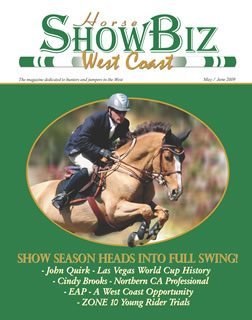by Tonya Johnston, MA
Appeared in Showbiz Magazine, May/June 2009
It’s safe to say that getting a junior rider to the ring is a team effort that includes a lot of parental support. Whether it is emotional support, organization, time management, transportation, financial backing – or a big mix of all of these factors, most juniors owe a big debt of gratitude to their parents for making their competitive lives workable and successful. Now, does that mean that the team cohesion between parent and child is perfect and the team runs like a Swiss watch? Perhaps, but it is also possible that the parent-child relationship as it relates to horse shows could benefit from a small tune-up now and then.
Team Factors: What Works?
Look around at sport’s best success stories – whether true ‘team’ sports (like basketball, soccer, volleyball, etc.) or other individual sports that require a ‘team’ to get one athlete to the competition field (tennis, golf, figure skating, etc.) – and you will see some universal truths:
- Championship teams have role players: The best teams have personnel who enjoy fulfilling their role, no matter how big or small.
- Communication is essential: Each team-member feels that they are heard and that their input is valuable.
- Support comes in many forms: There is tangible assistance (a ride to the horse show at 6 am) and intangible assistance (an upbeat tone of voice and smile) – both are invaluable to the overall performance of the team.
- Trust is crucial for long-term success and performance under pressure: When teammates feel that their efforts are backed by true faith that they will be successful over the long term, good things happen.
Tips for Creating Happy, Helping Parents
- Give parents clear roles and tasks. Whether it’s holding the water bottle and hunt coat, or staying in the stands with the video camera, it is helpful to talk about what contributions you (the junior rider) would appreciate. Try to have this conversation before the show or at least ahead of time, in order to facilitate a positive response and avoid miscommunication.
- Define boundaries that work for everyone – trainer, rider, parent, etc. By planning where, when and how the team will communicate you ensure that everyone, parents included, know what will be most successful for all team members. For example, hearing feedback or observations on your ride from your parent when driving back to the hotel may be better than in-between classes or at the back gate.
- Promote parents utilizing their strengths. Occasionally your barn can benefit from your parent’s expertise or skills. If a parent can contribute to the team in ways that make use of their talents (photographer, design work, etc.) it can be a positive way to help the parent feel valued (for more than just writing a check) and it can be a tremendously enjoyable experience for all.
- Create opportunities to air feelings and tweak the plan. No plan, role or boundary should have to remain static forever. Try to check-in with each other periodically to make sure the parents’ role is working for everyone involved.
- Encourage parents to follow their interests/hobbies/exercise routines at the shows. Happy, fulfilled parents make happy teammates – see if you can encourage them to spend down-time at the shows doing things that they especially enjoy so that their goals are being accomplished too!
Tonya Johnston, MA, is a Mental Skills Coach who specializes in working with equestrian athletes. Her coaching sessions teach mental strategies for optimal sport performance and help riders develop personalized preparation routines. Tonya’s clients have attained competitive success at every level, including national titles and awards. She has presented at both the USEA and USDF national conventions. Tonya has a master’s degree in Sport Psychology from John F. Kennedy University. She conducts “Mental Skills for Riders” clinics throughout the country as well as phone consultations with individual clients. Phone: 510.418.3664. www.TonyaJohnston.com


